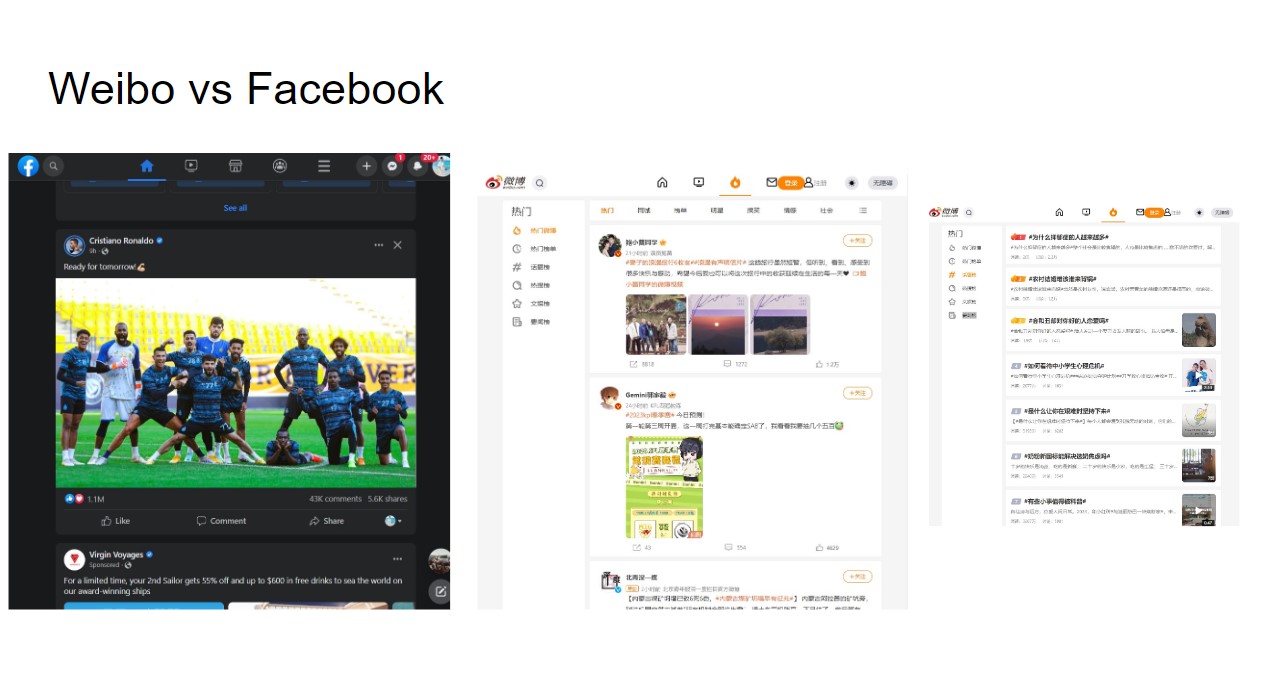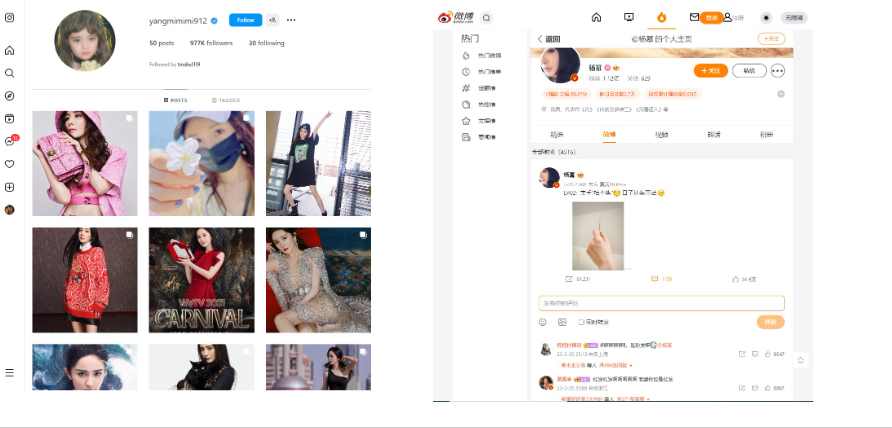51 Weibo – 微博 (wēi bó)
Jean-Luc Nguyen
simplified Chinese: 微博; pinyin: wēi bó
微博 (wēi bó), also known as Weibo, is one of China’s biggest social media platforms; it is a microblogging space that allows users to interact with each other. Similarly, it can be compared to powerhouse names such as Twitter, Facebook, etc. As a result, many people refer to Weibo as “Chinese Twitter.” One of the most significant factors in its exponential growth since its launch in 2009 is that the country banned all social media-related platforms; there were many incidents regarding riots and suspicion of foreign spies; therefore, the Chinese government has to take precautionary measures. Thus, the vast majority of Chinese people depend on Weibo as the leading platform to voice their opinions on various topics worldwide; in addition, it is an excellent tool for fans to express themselves concerning celebrities or other current events. Although the ban had some backlash, it benefited China’s economy because there were no competitors; hence, it encouraged more users to be active on Weibo instead. According to Weibo, there are “582 million monthly users […] net addition of approximately 51 million users on a year-over-year basis” (Yahoo Finance). This data signifies that Weibo plays a crucial role in the daily lives of many. Therefore, people would use this cultural term, such as “What is your Weibo?” as a way to connect with one another. Like in the states, we would ask each other for details regarding their Instagram/Facebook when trying to get to know someone.
The image I provided below is a screenshot of Yang Mi’s account on Weibo and Instagram. She is a famous actress best known for her role in ‘Eternal Love”. Moreover, you can see the resemblance between the two social media platforms. Likewise, celebrities and users can post pictures while allowing their followers to interact with them. Furthermore, they have a section on the site under “热门微博” to see what is trending. There is also a section for 话题榜 (topic list) and 要闻榜 (news), which provides users with various topics they can click and read about. I thought this is very interesting because this side of Weibo resembles Facebook; this explains why they are popular because it provides users with so much flexibility and options. Although China bans the big names social media websites, Weibo can provide users with features that are on par with those platforms; it is essentially a combination of all of them, which I think is extremely convenient.
Weibo constantly updates and adds new features as it continues to dominate the social media industry; it has beaten all its competitors to become China’s social media powerhouse platform and will continue to do so in the upcoming years.
Weibo vs Facebook

- Screenshot @ Weibo
Weibo vs Instagram

- Yang Mi © Weibo
Work cited:
“Weibo Reports First Quarter 2022 Unaudited Financial Results.” Yahoo! Finance, Yahoo!, https://au.finance.yahoo.com/news/weibo-reports-first-quarter-2022-090000161.html?guccounter=1&guce_referrer=aHR0cHM6Ly93d3cuZ29vZ2xlLmNvbS8&guce_referrer_sig=AQAAAGMbUD50IDZz03ory09sT_3w_s8mT6z9nyCLDR_2lO0SwVChd6iKtXHqXJIUT5ecBR8fCdW6xr3nCtL2Gzvu2D3Z0BthqnerCScODESCowlmn1lmfpZgMbOIyoadP_SmH466PvoaJvyLYX168dGz2wKXq_hEMp-KuRQfAEuZyjNN.
Noonan, Keith. “Weibo History: Everything Investors Need To Know.” The Motley Fool, The Motley Fool, 30 July 2017, https://www.fool.com/investing/2017/07/30/weibo-history-everything-investors-need-to-know.aspx.
Media Attributions
- Weibo vs Facebook © Weibo
- Weibo Screenshot © Weibo
